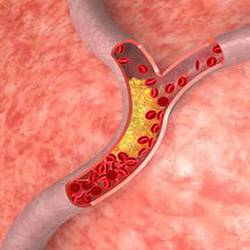ALS / Lou Gehrig's Disease Nutritional Causes, Treatment and Prevention
| Disorders
Amyotrophic Lateral Sclerosis (ALS), also known as Lou Gehrig's disease, is a rapidly progressive, fatal, neurodegenerative disease that attacks nerve cells (motor neurons) in the brain and the spinal column. They control the voluntary muscles, which in turn allow movement. The progressive degeneration of the motor neurons in amyotrophic lateral sclerosis eventually leads to their death.
Over a period of months or years, ALS causes increasing muscle weakness, inability to control muscle movement, and problems with speaking, swallowing, and breathing. However, thinking ability, bladder and bowel control, sexual function, and the senses (sight, hearing, smell, taste, touch) are unaffected. Each year, 1 to 2 per 100,000 people develop ALS, with men being affected slightly more often than women. ALS occurs throughout the world with no racial, ethnic or socioeconomic boundaries, and although it may develop at any age, it is most common in middle-aged and older adults.
Treatments for amyotrophic lateral sclerosis include the FDA-approved medication Rilutek,[1] while the drug Neurontin is sometimes prescribed for ALS as well. Other drugs reported to have stabilized ALS symptoms include Tamoxifen, used for breast cancer, and the antibiotic Minocycline, which has shown to delay onset or slow the progression of ALS symptoms in a mouse model.
Minocycline, also used to treat acne, is thought to work by blocking release of a molecule that triggers cell death. These findings may lead to new ways of treating ALS / Lou Gehrig's disease, or other neurodegenerative disorders.
Neurological syndromes developed in patients suffering from Lyme disease generated enough interest that a number of ALS patients were tested for Borrelia Burgdorferi antibodies in serum, resulting in a "significant" positive outcome.
In animal models, Lithium has been reported to be a beneficial treatment remedy for brain injury, spinal cord injury, Parkinson's disease, stroke, and amyotrophic lateral sclerosis, whereby recent clinical trials suggested that lithium (which is used to treat Manic Depressive Illness), may stop the progression of ALS.
When measuring nutritional aspects, or the intracellular chemistry of patients diagnosed with Lou Gehrig's disease, they comprise abnormal Sulfur levels, which is also seen with Alzheimer's disease - except that ALS patients present with elevated sulfur levels and above-normal selenium levels, while patients suffering from Alzheimer's disease present with very deficient sulfur levels, but not always very low selenium levels.
Both - Sulfur and Selenium - affect the central nervous system, provoking an inflammatory response as a result of excessive uptake / retention (such as with ALS), and provoking a degenerative response as a result of insufficient uptake / retention (such as with Alzheimer's disease). Subsequently, dietary and supplemental sources of sulfur should be adjusted accordingly when dealing with either one of these conditions. It should be noted however that diet is not the cause of amyotrophic lateral sclerosis, but the disease presents with excessive storage of cellular sulfur and selenium.
Lowering selenium and sulfur levels on a trial basis with either selenium and sulfur antagonists, or with electro-acupuncture therapy along strategic acupuncture points to suppress sulfur and selenium activity has resulted in a pronounced, short-term improvement of ALS symptoms, such as speech and muscle coordination in ALS patients. (see Acu-Cell "Selenium & Sulfur" for a list of selenium and sulfur antagonists). In contrast, some rare forms of ALS or Parkinson's-like diseases are actually attributable to mercury poisoning, in which case selenium supplementation may be a consideration for its mercury-lowering effect.

 Manganese may help with some symptoms of Parkinson's disease such as muscle rigidity and twitching...
Manganese may help with some symptoms of Parkinson's disease such as muscle rigidity and twitching...
 Research shows that phytosterols such as beta-sitosterol may help normalize the function of natural killer cells and T-helper lymphocytes...
Research shows that phytosterols such as beta-sitosterol may help normalize the function of natural killer cells and T-helper lymphocytes...
 Iron deficiency may be suspect with some forms of ADHD. 84% of children with ADHD were found to have abnormally low levels of ferritin...
Iron deficiency may be suspect with some forms of ADHD. 84% of children with ADHD were found to have abnormally low levels of ferritin...
 A high intake of B Vitamins can trigger heart palpitations, HBP, major complications in patients with congestive heart disease...
A high intake of B Vitamins can trigger heart palpitations, HBP, major complications in patients with congestive heart disease...